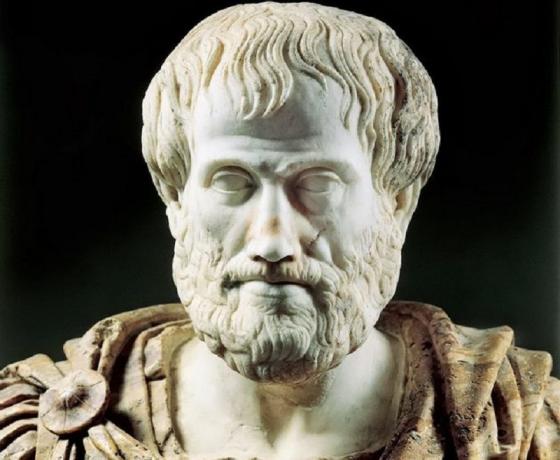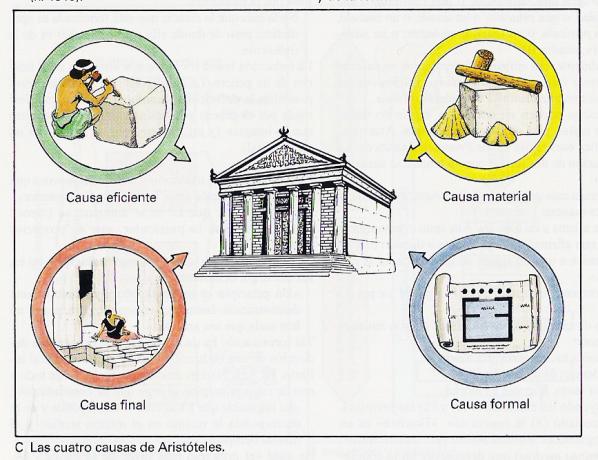Aristotle, Greek Aristotle, (born 384 BC, Stagira, Chalkidiki, Greece – died 322, Chalkis, Euboea), ancient Greek philosopher and scientist, one of the greatest intellectual figures in Western history. He was the author of a philosophical and scientific system that became the framework and vehicle for both Christian scholasticism and medieval Islamic philosophy. Even after the intellectual revolutions of the Renaissance, Reformation and Enlightenment, Aristotelian concepts remained embedded in Western thought.
Aristotle's intellectual reach was vast, encompassing most of the sciences and many of the arts, including biology, botany, chemistry, ethics, history, logic, metaphysics, rhetoric, philosophy of mind, philosophy of science, physics, poetics, political theory, psychology. and zoology. He was the founder of formal logic, devising for it a finished system that for centuries was regarded as the sum of discipline; and he pioneered the study of zoology, both observational and theoretical, where some of his work remained unsurpassed until the nineteenth century. But he is, of course, the most outstanding as a philosopher. His writings on ethics and political theory, as well as on metaphysics and philosophy of science, continue being studied, and his work remains a powerful current in philosophical debate. contemporary.

Philosopher and educator Mortimer Adler discussing Aristotle's writings on ethics, considering the philosophical question of “what makes a good human life – what makes it worth living and what we should do, not just live, but live good". 1963 produced by Encyclopædia Britannica Educational Corporation.
This article deals with the life and thought of Aristotle. For further development of Aristotelian philosophy, see Aristotelianism. For a treatment of Aristotelianism in the full context of Western philosophy, see Western philosophy.
Index
Aristotle was born on the Chalkidiki peninsula of Macedonia in northern Greece. His father, Nicomachus, was the physician of Amyntas III (reigned c. 393 - c. 370 BCE), king of Macedonia and grandfather of Alexander the Great (reigned 336-323 BCE). After his father's death in 367, Aristotle migrated to Athens, where he joined Plato's Academy (c. 428-c. 348 BC). He remained there for 20 years as a student and colleague of Plato.
Many of Plato's later dialogues date from these decades and may reflect Aristotle's contributions to the philosophical debate in the Academy. Some of Aristotle's writings also belong to this period, though most survive only in fragments. Like his teacher, Aristotle initially wrote in dialogue form, and his early ideas show a strong Platonic influence. His dialogue Eudemo, for example, reflects the Platonic view of the soul as imprisoned in the body and capable of a happier life only when the body has been left behind. According to Aristotle, the dead are more blessed and happier than the living, and to die is to truly come home.
Guardians of History: The Olympia Obstacles is an immersive audio adventure that takes you on secret missions into the past. A simple voice command will take you back to the magical world of Ancient Greece!
Another juvenile work, Protrepticus ("Exhortation"), has been reconstructed by modern scholars from quotations in various works from late antiquity. Everyone must do philosophy, says Aristotle, because even arguing against the practice of philosophy is itself a form of philosophizing. The best form of philosophy is the contemplation of the universe of nature; it is for this purpose that God created human beings and gave them a divine intellect. Everything else – strength, beauty, power and honor – is useless.
It is possible that two of Aristotle's surviving works on logic and dispute, the Sophistic Topics and refutations, belong to this early period. The first demonstrates how to build arguments for a position you have already decided to adopt; the second shows how to spot weaknesses in others' arguments. Although no work represents a systematic treatise on formal logic, Aristotle can rightly say, at the end of the sophistic rebuttals, that he invented the discipline of logic – nothing existed when it started.
During Aristotle's residence at the Academy, King Philip II of Macedonia (reigned between 359 and 366 BC) waged war against several Greek city-states. The Athenians defended their independence only half-heartedly and after a series of humiliating concessions, allowed Philip to become, by 338, master of the Greek world. It can't have been an easy time to be a Macedonian resident in Athens.
The scope of Aristotle's scientific research is staggering. Much of it is concerned with the classification of animals into genus and species; over 500 species figure in his treatises, many of them described in detail. Numerous items of information on anatomy, diet, habitat, modes of copulation and reproductive systems of mammals, reptiles, fish and insects are a mixture of thorough investigation and traces of superstition. In some cases, their improbable stories about rare fish species were accurately verified many centuries later. Elsewhere, he clearly and rightly asserts a biological problem that has taken millennia to solve, such as the nature of embryonic development.
Despite a mixture of the fabulous, Aristotle's biological works must be regarded as a stupendous achievement. His investigations were conducted in a genuine scientific spirit, and he was always ready to confess ignorance where the evidence was insufficient. Whenever there is a conflict between theory and observation, you have to rely on observation, he insisted, and theories are reliable only if their results conform to observed phenomena.
In 343 or 342, Aristotle was summoned by Philip II to the Macedonian capital at Pella to act as tutor to Philip's 13-year-old son, the future Alexander the Great. Little is known about the content of Aristotle's instruction; although Alexander's Rhetoric has been included in the Aristotelian corpus for centuries, it is now commonly considered a forgery. 326 Alexander had become the master of an empire that stretched from the Danube to the Indus and included Libya and Egypt. Ancient sources report that during his campaigns, Alexander arranged for biological specimens to be sent to his tutor from all parts of Greece and Asia Minor.
Other articles:

According to Aristotle, there are four causes involved in the existence of something:
See some of Aristotle's main writings separated by their general subjects:
"The beautiful is the splendor of order."
"Man is, by nature, a political animal."
"Man is a language animal."
"Nothing that potentially exists becomes an act if not for something that already exists in an act."
Subscribe to our email list and receive interesting information and updates in your email inbox
Thanks for signing up.